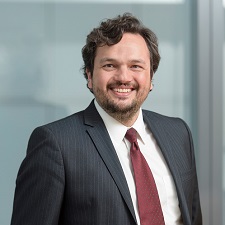Damon Runyon scientists lead efforts against KRAS, the “undruggable” cancer target

Typically, when scientists discover a cancer-causing mutation, the goal is to develop a molecule that blocks the protein produced by the mutated gene. But for cancers driven by mutations in the KRAS gene—which include non-small cell lung, colorectal, and pancreatic cancers—this path to drug development has long been thwarted. The mutated KRAS gene encodes for a protein that releases continuous “grow” signals, causing cells to proliferate uncontrollably. For 40 years, this mutant protein was considered “undruggable,” its surface too smooth for a therapeutic molecule to bind. Then, after screening nearly 500 different molecules, a team at the University of California, San Francisco (led by Kevan M. Shokat, PhD, mentor to several Damon Runyon Fellows and former Damon Runyon-Rachleff Innovation Award Committee Member) discovered one that locks into a hidden crevice in the protein, stopping its activity. Even better, this hidden crevice only exists in the mutant version of the protein, meaning the molecule only targets cancerous cells—sparing healthy cells.

pocket in the mutant protein,
inactivating it.
Since this discovery in 2013, scientists have been working tirelessly to develop a drug that can deliver the therapeutic molecule to patients with KRAS-driven cancers. Their efforts came to fruition in May of this year, when former Damon Runyon Clinical Investigator Piro Lito, MD, PhD, and colleagues at Memorial Sloan Kettering Cancer Center led the clinical trials that resulted in accelerated FDA approval for this drug, sotorasib, for patients with advanced non-small cell lung cancer. While additional studies are needed to confirm long-term benefit, this marks the first FDA approval of any KRAS inhibitor, a milestone that once seemed unreachable.
Dr. Lito’s success is likely to unleash a flood of other KRAS inhibitors, many already in clinical trials, aimed at treating other KRAS-driven cancers. Damon Runyon-Connie and Bob Lurie Fellow Qinheng Zheng, PhD, is searching for a KRAS inhibitor that works against specific mutations most common in pancreatic cancer, and former Damon Runyon Fellow Ziyang Zhang, PhD, is investigating how to combine KRAS inhibitors with immunotherapies. These remarkable scientists, and their lineage of discovery, exemplify cancer research at its best: a world defined by collaboration and persistence, where investing in one scientist yields exponential returns.
